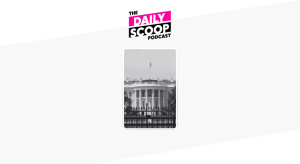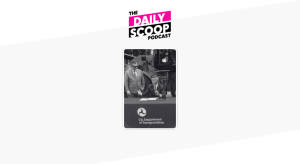Tech thinkers: U.S. needs national IoT strategy
The U.S. public sector must set a national strategy for developing the Internet of Things if the technology is to reach its fullest potential, a think tank said Wednesday.
The Information Technology and Innovation Foundation’s Center for Data Innovation in a new report urges policymakers around the world, and particularly those in the United States, to craft national strategies for the emerging IoT landscape. Likening it to the public sector’s involvement in the development of the Internet, CDI says IoT technologies will not have as transformative an impact if it is left to private industry to cultivate them.
“Our report makes the case that no country will successfully capture the benefits of the Internet of Things by leaving its development solely up to the market,” said Joshua New, policy analyst for CDI and the report’s co-author. He spoke during a panel discussion about the report Wednesday on Capitol Hill. “Just as no country can capture the benefits of the Internet of Things without a robust private sector unencumbered by restrictive regulations that is free to innovate.”
While private sector innovation in the U.S. has led to many of the apps and devices — like FitBits and Internet-connected refrigerators — that drive the prevalence of IoT, there are higher-order benefits that the market alone cannot capture, New argued. For instance, smart thermometers can help energy consumers save on their power bills, but if the federal government and the Energy Department build a strategy around the use of the devices, it could produce larger scale effects, like less stress on the power grid and fewer emissions.
“That is a value the market cannot capture,” he said.
ITIF President and CEO Rob Atkinson has no doubt that the Internet of Things will play a critical role in federal agencies’ operations in the future, and they must coordinate or risk missing out on the hyper-connected benefits of IoT.
“IoT is different…because it is a technology that not just the private sector is going to adopt, but the government is going to adopt,” Atkinson said. “Governments of all levels are going to be involved in it. IoT is something that each agency is going to have to do, and without a strategy, agencies may sub-optimize and think about only what they’re doing.”
Rep. Darrell Issa, R-Calif., who co-founded the Internet of Things Caucus with state of Washington Democrat Rep. Suzan DelBene in early 2015 because “there’s so little information in Congress in this area,” applauded CDI’s report.
“We have to find a way to create strong, safe and reliable connectivity,” Issa said in his opening remarks, speaking broadly of his caucus’ efforts to educate Congress and drive toward a national strategy on IoT. “And if we do, then there’s an almost unlimited potential for efficiencies and a better life for our families.”
Industry representatives on the panel agreed unanimously in their support of a national strategy for IoT.
“There are bits and pieces being done across the federal government, which is great, but there really is a need to coordinate all of these activities under one national plan,” said Steve Crout, vice president of government affairs for Qualcomm Inc.
Jeff Brueggeman, vice president of global public policy at AT&T, said “the time is right to do this.”
“Particularly on some of the large projects like transportation, public safety and smart cities, you really do need that network effect to pull together,” Brueggeman added. “In the absence of a strategy, we run the risk of a patchwork quilt” of regulation and standardization.
At this point, New said, no federal agencies have really taken formal steps to involve IoT in their long-term planning. Some agencies are adopting it with a piecemeal approach, he said, adding that the U.S. Postal Service was the only government body “that has formally analyzed how the Internet of Things can improve their operations,” New said. “But that is simply not good enough.”
Contact the reporter on this story at Billy.Mitchell@fedscoop.com. Follow him on Twitter @BillyMitchell89.






